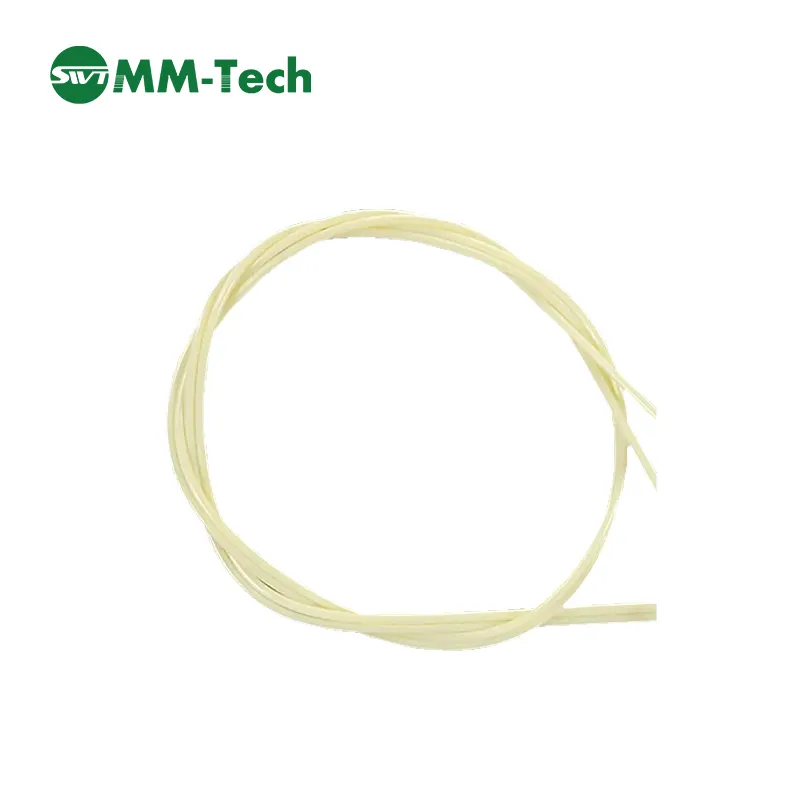An Insider’s Guide to ABS Welding Rod for Repair Shops, Fabricators, and OEMs
If you work with plastics, you already know: ABS is the no-drama hero of repair and fabrication. I’ve watched body shops, pipe crews, and even university labs gravitate toward it because it welds consistently and behaves predictably. The engineering-grade rod from MMTechWeld (origin: NO.355, Youyi Street, Qiaoxi District, Shijiazhuang, Hebei, China) has been making the rounds lately—partly because of supply reliability, partly because, frankly, it just runs clean in real-world hands.

What’s happening in the market
- EV collision repair is pushing demand for plastic bumper and trim fixes—ABS Welding Rod wins on cost vs. replacement.
- 3D printing labs use ABS Welding Rod for post-print repairs and structural reinforcement of prototypes.
- Water and ventilation OEMs are standardizing on color-matched ABS rods to speed QA sign-off.
- Sustainability angle: repairing ABS parts instead of scrapping them is a quick CO2 win, as many customers quietly note.
Technical specifications (typical values)
| Property | Typical Value (≈) | Test Standard |
|---|---|---|
| Diameter options | 2.0 / 3.0 / 4.0 mm; round or triangular profiles | Factory spec (real-world use may vary) |
| Density | ≈1.04 g/cm³ | ISO 1183 |
| Tensile strength | ≈42–50 MPa | ASTM D638 / ISO 527 |
| Flexural modulus | ≈2.1–2.4 GPa | ASTM D790 / ISO 178 |
| Impact strength | High (Izod ≈180–220 J/m) | ASTM D256 / ISO 179 |
| Vicat softening | ≈95–105 °C | ASTM D1525 / ISO 306 |
| Recommended welding air temp | ≈260–290 °C (hot-air); nozzle distance ~5–10 mm | DVS 2207-1 guidance |
Process flow and QA
- Materials: Virgin ABS resin + optional UV stabilizers, color masterbatch.
- Extrusion: Precision die control for diameter/ovality; post-extrusion conditioning.
- Methods in use: Hot-air welding, extrusion welding; typical V-groove 60–90°.
- Testing: Dimensional checks, tensile bars cut from rod plaque (ASTM D638), color ΔE, bead peel tests (shop QA).
- Standards: EN 13067 (welder qualification), DVS 2207-1 (thermoplastic welding), plus ASTM/ISO materials tests.
- Service life: Indoors >10 years; outdoors recommend UV-stabilized ABS Welding Rod for durability.
- Industries: Automotive, HVAC/pipe systems, appliance housings, 3D printing labs, signage.
Where it’s used (quick hits)
- Automotive bumpers, fairings, interior trim—many customers say the bead flows cleanly, reducing rework.
- ABS pipe/fittings in ventilation or low-pressure fluid handling.
- 3D print prototype repairs and seam reinforcement.
- Machine guards and enclosures that need tidy cosmetic welds.
Why fabricators pick it
- Predictable fusion window; less burn-through compared with some commodity plastics.
- Good balance of stiffness and toughness.
- Color matching and custom profiles mean faster sign-offs and fewer paint touchups.
Vendor comparison (field-notes style)
| Vendor | Certs | Customization | Lead time | Notes |
|---|---|---|---|---|
| MMTechWeld ABS Welding Rod | ISO 9001; RoHS/REACH declaration | Colors, 2–4 mm diam., round/triangular | ≈7–15 days | Clean bead, consistent ovality (shop feedback) |
| Vendor A | ISO 9001 | Limited colors | ≈10–20 days | Solid mechanicals; fewer profile options |
| Vendor B | — | Standard only | Stock-dependent | Budget-friendly; variable consistency |
Mini case studies
- Auto body shop: Switched to triangular 3 mm ABS Welding Rod for bumper splits—reported 12% faster fill on V-grooves.
- Water treatment skids: Color-matched rod reduced visible seam contrasts; fewer repaints.
- University lab: Used ABS Welding Rod to stitch FDM-printed housings; tensile of repaired seam reached ≈80% of parent part (ASTM D638 lab coupon).
Quick tip: Prep matters. Bevel, scrape oxidation, wipe with isopropyl, and keep travel speed steady. Honestly, that’s half the battle.
References
- ASTM D638 – Standard Test Method for Tensile Properties of Plastics. https://www.astm.org/d0638
- ASTM D790 – Flexural Properties of Unreinforced and Reinforced Plastics. https://www.astm.org/d0790
- ISO 527 – Plastics — Determination of tensile properties. https://www.iso.org/standard/56046.html
- DVS 2207-1 – Hot gas welding of thermoplastics. https://www.dvs-media.eu
- EN 13067 – Plastics welding — Qualification of welders. https://standards.cen.eu
MM-Tech, established in 2011, is a leading manufacturer of thermoplastic welding equipment in China.hot air plastic welder We specialize in the research, development, production, and sales of thermoplastic welding equipment.hot air welding gun Our product line is extremely rich, covering geomembrane welders, polymer hot air welders, tarpaulin hot air welders, hot air welders, hand extrusion welders, and various welding tools, comprehensively meeting the diverse needs of both on-site construction and workshop operations.hot air welder roofing Our products have been exported to over 100 countries and have won the trust of more than 3,000 customers.plastic welding heat gun|super blog